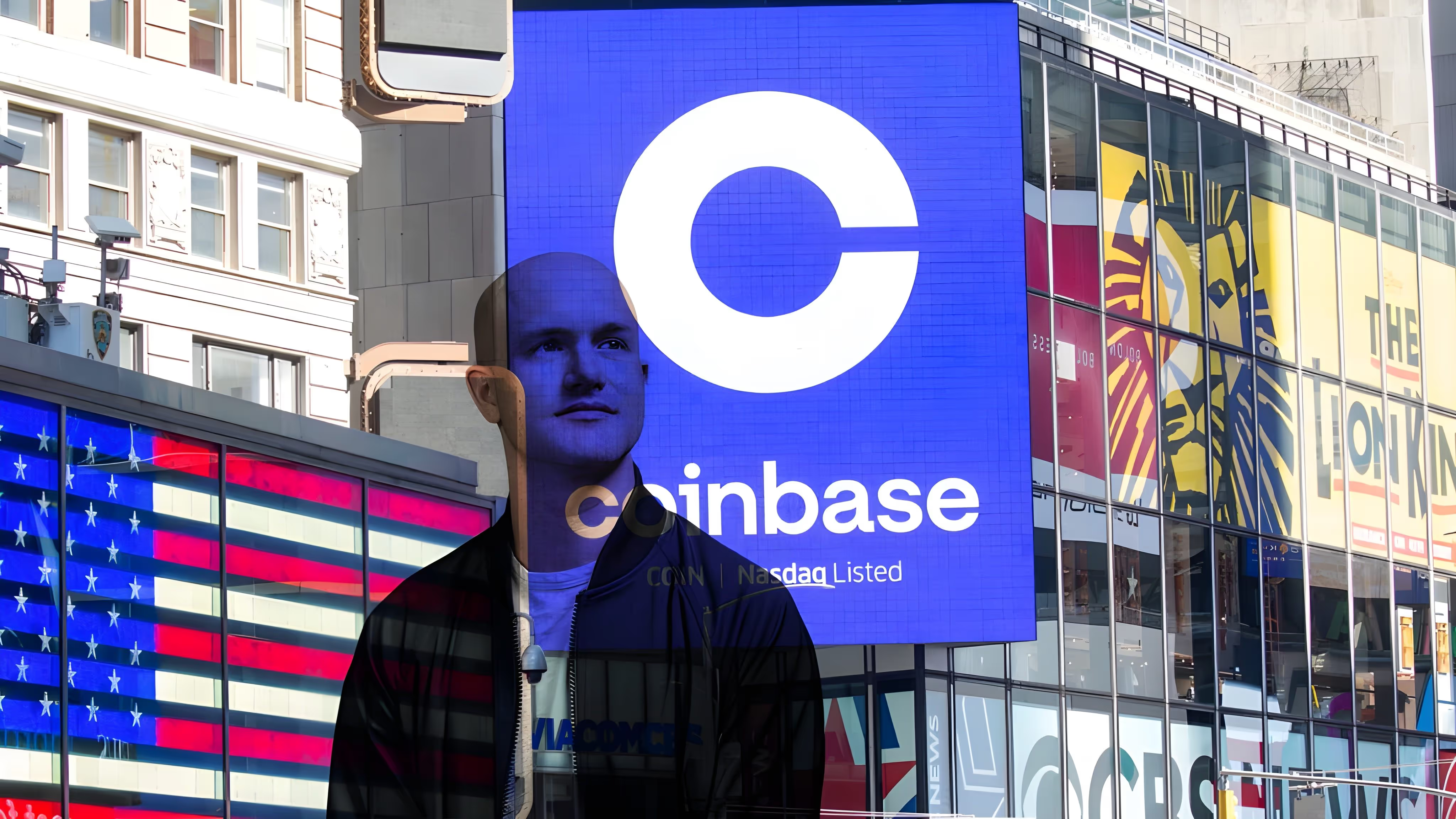Brian Armstrong: The Visionary Behind Coinbase’s Crypto Empire and His Battle for Financial Freedom

In the pulsating heart of Silicon Valley, where ambition and innovation collide, Brian Armstrong emerged as a quiet revolutionary, a man whose understated demeanor masked his bold vision to reshape global finance. As the co-founder and CEO of Coinbase, the largest cryptocurrency exchange in the United States, Armstrong became a titan of the digital age, steering a company valued at 85 billion dollars at its peak in 2021. With his boyish features, casual hoodies, and a penchant for naming ventures after Bitcoin’s enigmatic creator, he cultivated the image of an earnest tech idealist. Yet beneath this exterior lies a complex figure, a blend of calculated pragmatism, relentless drive, and polarizing decisions that sparked both admiration and controversy. His journey from a curious coder to a billionaire advocate for crypto’s mainstream adoption is a saga of triumphs and stumbles, revealing the man behind the empire and the turbulent waters he navigates in an industry caught between liberation and regulation.
Born on January 25, 1983, near San Jose, California, Brian Armstrong grew up in a world shaped by engineering precision. Both parents were engineers, fostering an environment where problem-solving was a way of life. Raised in a middle-class household, Armstrong showed entrepreneurial flair early on, selling candy on the playground in elementary school and later trading used computers as a teenager. His academic path led to Bellarmine College Preparatory, a private all-male Catholic school, before enrolling at Rice University in Texas. There, he earned a dual bachelor’s degree in economics and computer science in 2005, followed by a master’s in computer science in 2006. At Rice, his entrepreneurial instincts flourished: he co-founded UniversityTutor.com, a platform connecting students with tutors, foreshadowing his knack for spotting market gaps. After graduating, he spent a year in Buenos Aires working for an education company, an experience that exposed him to the inefficiencies of traditional financial systems, particularly during Argentina’s hyperinflation. This planted a seed for his later passion for decentralized finance.
Armstrong’s early career was a mosaic of technology and finance. He worked as a developer at IBM, a consultant at Deloitte, and, crucially, as a software engineer at Airbnb from 2011 to 2012. At Airbnb, he witnessed the challenges of cross-border payments, as the company struggled to send money to South America. This experience aligned with his discovery of Bitcoin in 2010, when he encountered Satoshi Nakamoto’s whitepaper. The document, a blueprint for a decentralized currency, captivated him. He began coding on nights and weekends, building prototypes to buy and store cryptocurrencies. His passion for Bitcoin’s potential to create an open financial system drove him to leave Airbnb and pursue a bold idea: a platform to make crypto accessible to the masses. In 2012, he applied to Y Combinator, the prestigious startup accelerator, posting on Hacker News to find a co-founder. After over fifty meetings, he connected with Fred Ehrsam, a former Goldman Sachs trader, through a Reddit subgroup. Together, they founded Coinbase, securing a 150,000 dollar investment from Y Combinator to launch what would become a cornerstone of the crypto industry.
Coinbase, initially a simple platform for trading Bitcoin, grew into a giant under Armstrong’s leadership. By 2025, it served over 100 million verified users across more than 100 countries, offering tools like Coinbase Wallet and Coinbase Pro for retail and institutional investors. Armstrong’s vision was clear: to democratize finance by making cryptocurrencies as user-friendly as PayPal. He named the company’s first wallet “Toshi,” a nod to Satoshi Nakamoto and, coincidentally, one of his cats, reflecting a quirky streak that endeared him to some and puzzled others. His leadership propelled Coinbase to a historic direct listing on Nasdaq in April 2021, briefly reaching a market capitalization of 85 billion dollars. Forbes estimated Armstrong’s net worth at 7.6 billion dollars in February 2024, with his 19 percent stake in Coinbase forming the bulk of his wealth. Unlike the flamboyant crypto moguls flaunting private jets, Armstrong maintained a low-key lifestyle in California, shunning ostentation.
Armstrong’s personality is a study in contrasts. Colleagues describe him as intensely focused yet socially reserved, thriving in code and strategy but struggling with small talk. His work ethic is legendary: he often worked 12-hour days, surrounded by monitors, driven by a belief that crypto could free financial systems from centralized control. His quirky habits, like naming projects after his pets or insisting on a remote-first company culture during the Covid-19 pandemic, added to his mystique. Yet, he was not without eccentricities that raised eyebrows. In meetings, he multitasked relentlessly, sometimes coding or checking emails while discussing strategy, a trait some found brilliant and others disrespectful. His office, often cluttered with energy drink cans, reflected a mind in constant motion, prioritizing function over form.
His commitment to Effective Altruism, a philosophy advocating maximum positive impact, shaped much of his public persona. In 2018, he became the first crypto entrepreneur to sign The Giving Pledge, vowing to donate the majority of his wealth. He launched GiveCrypto.org, a nonprofit aimed at distributing cryptocurrency to those in need in emerging economies, and co-founded ResearchHub, a platform to democratize scientific research. These ventures painted him as a philanthropist with a mission, but skeptics questioned whether they were strategic moves to bolster his image amid growing regulatory scrutiny.
Armstrong’s tenure at Coinbase has not been without turbulence, though he avoided the catastrophic downfall of peers like Sam Bankman-Fried. His push for an “apolitical” workplace culture sparked controversy in 2020, when he declared that Coinbase would not engage in societal issues unrelated to its mission. After publicly supporting Black Lives Matter following George Floyd’s murder, he reversed course, offering severance to employees uncomfortable with this policy. Sixty employees, about about 5 percent of the workforce, left, and critics accused him of stifling dissent. A 2018 report alleged that Coinbase paid its Black and female employees less than their white male counterparts, denting his progressive credentials. Regulatory battles also loomed large. In 2021, he publicly criticized the SEC for inconsistent crypto regulations, particularly after the agency blocked Coinbase’s yield product. His tweet thread, seen by some as strategic and others as reckless, highlighted his frustration with an uneven regulatory landscape. The SEC’s 2023 lawsuit against Coinbase for operating as an unregistered exchange tested his resilience, but he navigated it with a mix of defiance and diplomacy, meeting with figures like House Democrats and even Donald Trump in 2024 to advocate for clearer rules.
Armstrong’s personal life remains largely private, a rarity in an industry of larger-than-life personalities. He is unmarried, with little known about his relationships, and prefers to let his work speak for itself. His advocacy extends beyond Coinbase: he co-founded NewLimit, a biotech startup focused on extending human health spans, and champions AI integration in crypto, completing the first AI-managed crypto transaction in 2025. Yet, critics point to a certain rigidity, a belief in his own vision that borders on arrogance. He once told an interviewer that Coinbase was “the easiest way” to engage with crypto, a statement that overlooked the complexities users faced during market crashes, like Bitcoin’s 2017 plunge, when Coinbase struggled to handle surging demand.
As of August 2025, Armstrong remains at Coinbase’s helm, a billionaire navigating an industry at a crossroads. His net worth fluctuated with crypto’s volatility, dropping to 2.4 billion dollars in 2022 before rebounding. Unlike others, he has not faced a personal downfall, but Coinbase’s future is uncertain amid regulatory pressures and competition. His legacy is a paradox: a man who made crypto mainstream while clashing with the systems he sought to disrupt. His quirks, from cat-inspired project names to relentless multitasking, paint a picture of a driven, idiosyncratic leader. Whether a visionary or a pragmatist playing a long game, Armstrong’s story is a testament to the fragile line between innovation and overreach in a world where trust is as volatile as the markets he seeks to transform.

